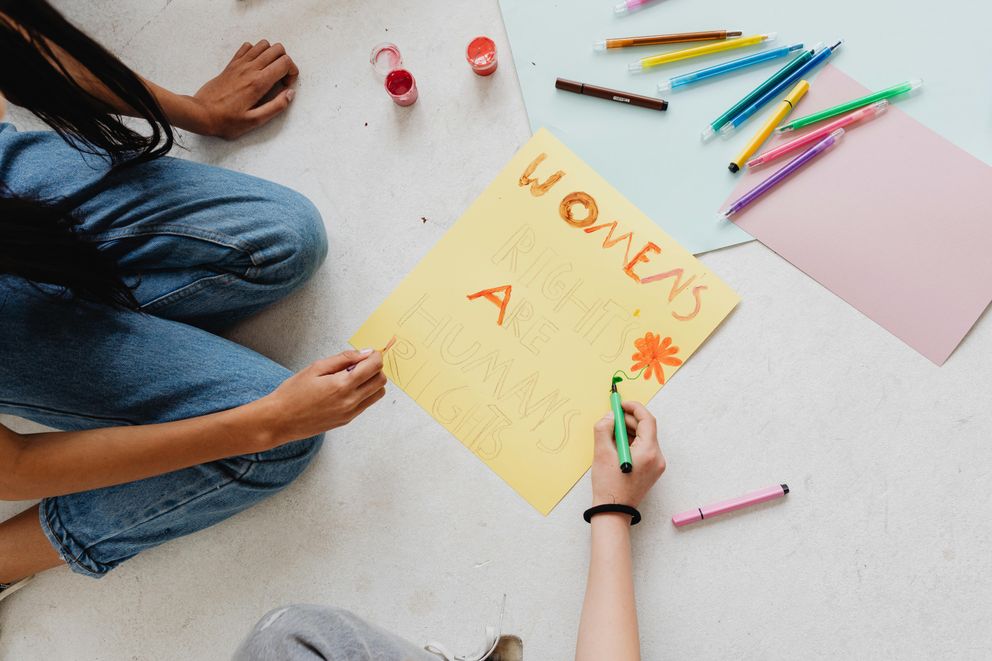
CBT for Women’s Sexual Health: Tackling Anxiety, Body Image, and Intimacy Issues
Sexual health is a critical component of overall well-being, but many women face challenges related to intimacy, body image, and anxiety that can affe...

Let’s cozy up for a candid chat about a subject that touches many yet often lingers in the shadows - weight discrimination. This isn’t just a heart-to-heart; it’s about equipping ourselves with knowledge, grasping the extent of this issue, and discovering how we, as a collective, can advocate for change. So, make yourself comfortable, and let’s embark on this journey of enlightenment and empowerment together.
Imagine being treated unfairly or facing judgments based solely on your body size. This is the essence of weight discrimination or fat shaming. Astonishingly, it’s reported to be as prevalent as racial discrimination in the U.S., with incidents of weight discrimination having increased significantly from 1995 to 2016, according to research from Yale University’s Rudd Center for Food Policy & Obesity. It’s a startling reality check, isn’t it?
Picture a skilled woman, perhaps it’s you or someone you know, being overlooked for a promotion or job due to her size. Surprisingly, this is not uncommon. The Obesity Action Coalition reports that women who are overweight might see up to a 6% reduction in earnings compared to their average-weight counterparts in similar roles. This discrepancy widens for women in prominent positions, signaling a dire need for us to confront fat shaming in the workplace.
Ever felt prejudged by a doctor before you’ve even had a chance to speak? This isn’t an illusion. Research from the National Institutes of Health (NIH) reveals that women with obesity often face skepticism and judgment in healthcare settings, leading many to delay or avoid seeking care. This can significantly affect the quality of healthcare received, underscoring the urgency for enhanced training among healthcare providers to ensure empathetic, unbiased care for every woman.
Think back to your school days. Besides academic pressures, some face bullying based on their body size. According to the American Psychological Association (APA), children and adolescents who are bullied about their weight are at a higher risk for depression, low self-esteem, and body dissatisfaction. For young women, these impacts can be particularly severe, highlighting the importance of promoting body positivity and anti-bullying initiatives from a young age.
Noticed how films and TV often typecast women with obesity in unflattering or comedic roles? This portrayal, critiqued by the Entertainment Industry Foundation, reinforces harmful stereotypes and perpetuates stigma. Advocating for a more inclusive and respectful representation of women’s bodies in media is crucial for breaking this cycle.
The World Health Organization (WHO) emphasizes the global necessity to combat weight discrimination, recognizing it not only as a societal and psychological issue but also as a significant public health concern. The WHO advocates for policies that promote health at all sizes, aiming to dismantle the biases that contribute to weight discrimination. It’s a global call to action for all of us to work towards a more inclusive society.
As we navigate through these discussions, the movement towards body positivity becomes increasingly important. Celebrating our bodies, irrespective of size, and recognizing the beauty in diversity are essential steps towards healing and acceptance. It’s about changing the narrative from one of judgment to one of celebration, for every woman to feel valued and respected.
I want to share a snippet of my own path. My weight has fluctuated, bringing both praise and criticism. Through it all, I’ve realized my worth isn’t tied to a scale. And neither is yours. By standing together against these biases, we can champion a world that celebrates the diverse beauty of all women.
A: Champion for inclusive policies that confront weight bias directly, fostering a culture where accomplishments, not appearances, are valued.
A: Seek healthcare professionals who are allies against weight bias. Advocating for yourself is crucial; your health is of utmost importance.
A: Push for schools to implement comprehensive anti-bullying policies that include weight discrimination. promoting body positivity can create a foundation of self-esteem and acceptance.
This dialogue on weight discrimination is the beginning of a broader conversation. By sharing knowledge, offering support, and celebrating our unique beauty, we can tackle these challenges head-on. Let’s continue this conversation, extending it beyond ourselves to everyone in our circles. Together, we can forge a world that embraces every woman, in all her splendid diversity.

Sexual health is a critical component of overall well-being, but many women face challenges related to intimacy, body image, and anxiety that can affe...

Cognitive Behavioral Therapy (CBT) is a powerful, evidence-based treatment widely used to address issues like depression, anxiety, and stress. But whe...

In a world that often prioritizes connectivity and being constantly "on," solitude—time spent alone—can seem like an overlooked luxury. But solitude, ...

The connection between what we eat and how we feel is powerful—certain foods provide the nutrients our brain needs to support mood, energy, and overal...

For women with ADHD, navigating relationships—whether romantic or platonic—can present unique challenges. ADHD symptoms like distraction, impulsivity,...